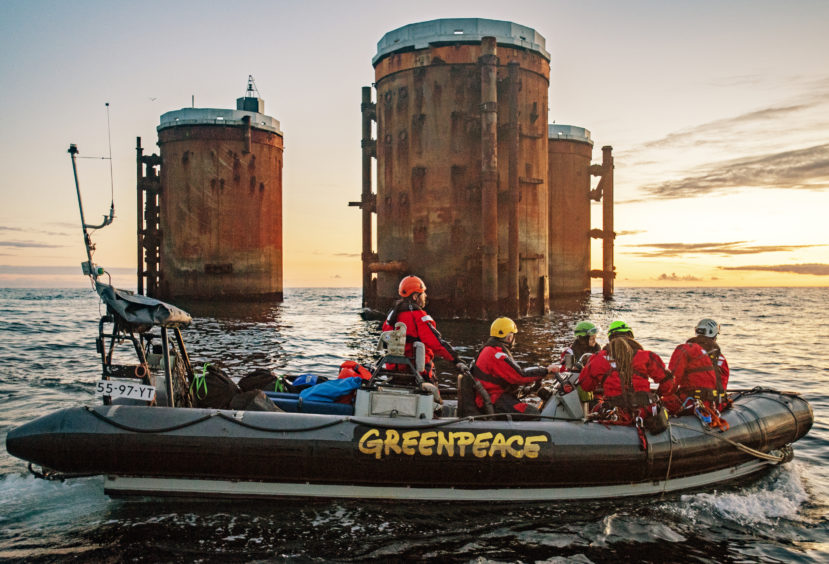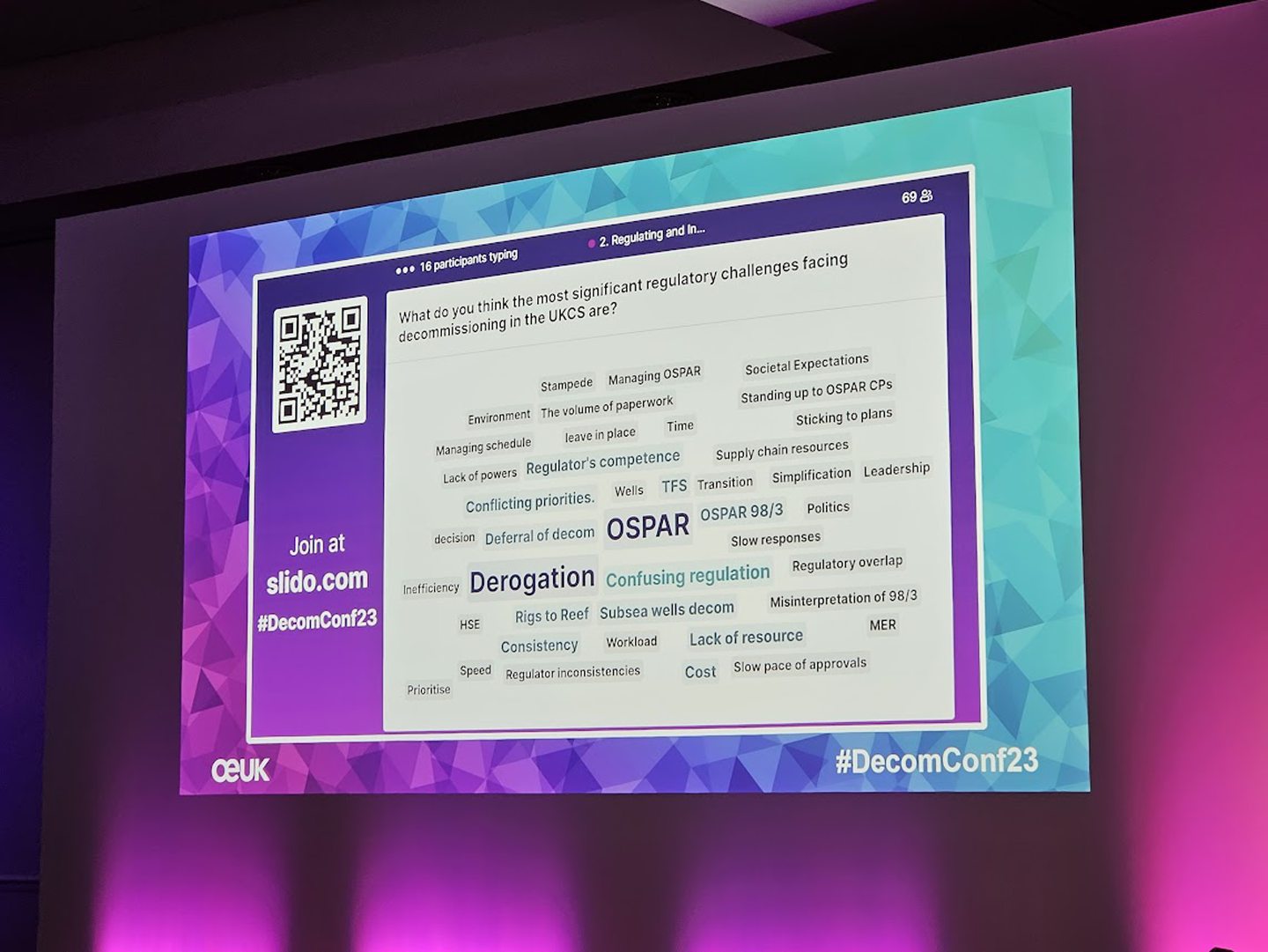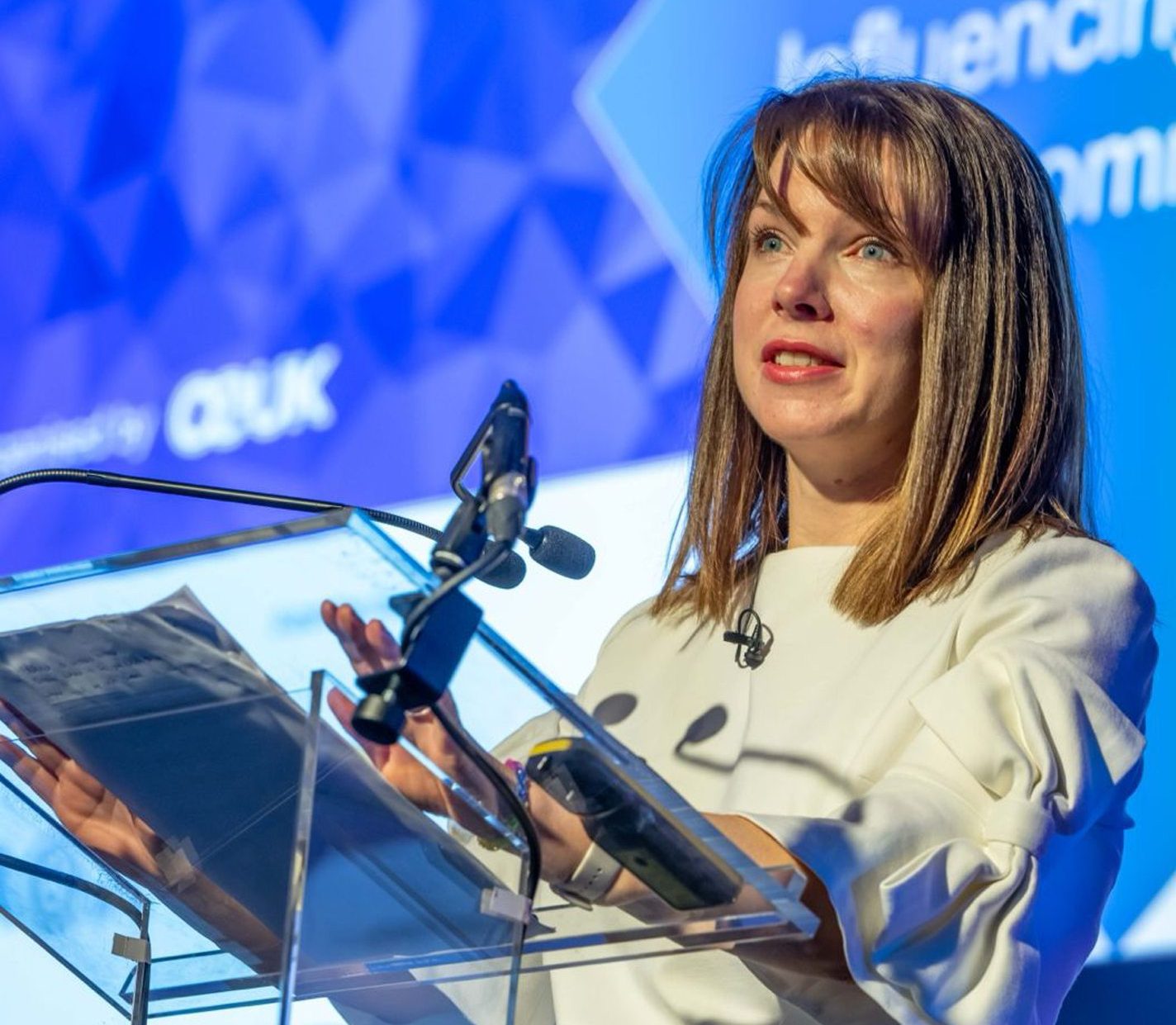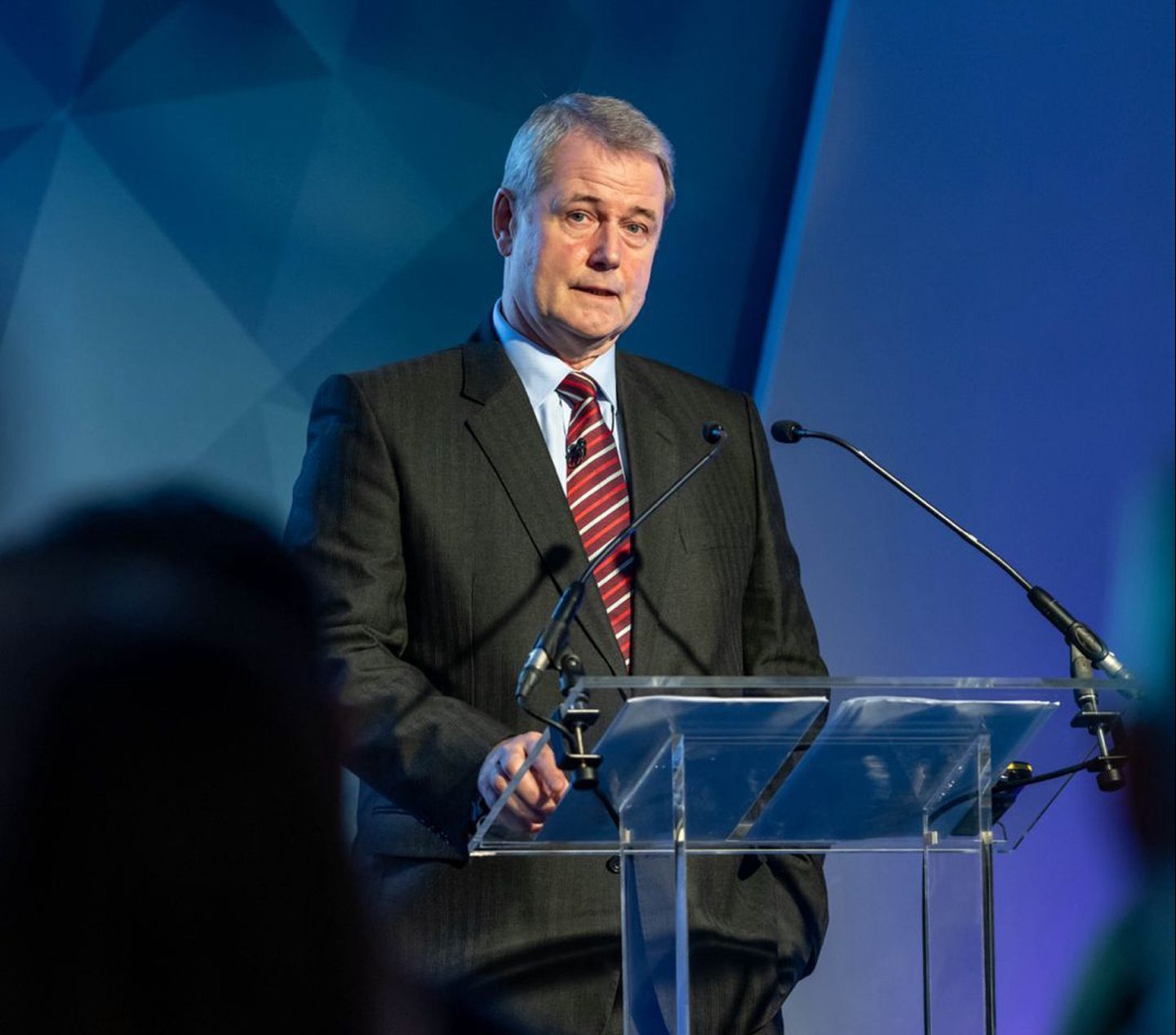
“High profile” issues around the OSPAR convention – a treaty requiring removal of oil platforms from the North Sea – have been highlighted among the top challenges facing the UK decommissioning sector.
The annual Decom Conference at St Andrews, organised by trade body Offshore Energies UK (OEUK), honed in on regulatory barriers linked to the pan-European agreement which requires removal of manmade structures from the seabed.
Samantha Hewson, head of decommissioning at environmental regulator OPRED, said: “OSPAR potential derogations, they’re high-profile, a lot of attention and scrutiny from the public, politically, and internationally, so of course that’s a priority for my team and those above me.”
OSPAR was named among the “most significant regulatory challenges facing decommissioning in the UKCS” by the Fairmont St Andrews conference attended by over 500 delegates.
Several operators have been seeking “derogations” to the convention, the highest profile being Shell, which has waited years for a decision on whether it can keep the huge legs of its Brent platforms in the sea – including thousands of tonnes of oil-sediment contents within them.

A decision is finally expected in 2024. The Shell proposals are backed by the UK Government but have sparked concern from other OSPAR parties and environmental groups.
TAQA and Fairfield Energy have also been seeking derogations, which are only meant to be granted in exceptional circumstances, and more requests could follow as decom ramps up.
OPRED said 120 programmes for shutdown of oil and gas fields are expected in the next five years, and it means their team is going to have to balance a heavy workload.
“I don’t want the 20% taking up 80% of the time,” said Ms Hewson of the derogations.
“I know we’ve got some really tricky stuff in terms of derogations, but we’ve got a load of over stuff which is also tricky which we need to be progressing in the meantime, and I don’t want to lose sight of that because that wouldn’t be fair on other operators who are keen to move ahead.”
No silver bullet
The UK has clashed with parties like Germany and the Netherlands on decommissioning plans – Ms Hewson said there is “no silver bullet” for OSPAR but is working to “build trust” in order to make progress.
However, she and Greenpeace senior scientist David Santillo both noted at the conference that the OSPAR rules were put in place in 1998 with the “clear intent” that derogations would decrease in time as the sector becomes more experienced in decommissioning.
The Shell issue has rumbled on in controversy for years – with environmental and political concern centred on the potential for the oil-sediment contents within the legs to spill into the sea over time as the concrete gravity-based structures degrade.
Legally, the decision ultimately lies with the UK Government, though breaching OSPAR could damage the country’s environmental credentials.
Greenpeace and other OSPAR parties like Germany have argued these can be removed from the structures without having to actually remove the concrete legs themselves.
Shell meanwhile argues that leaving the structures in place in totality is “the safest, most environmentally sound and technically achievable solution”.
‘Should not be beyond the realms of technical capability’
Talking generally about OSPAR requirements, Mr Santillo, who is a researcher at Exeter University who has worked on 10 high-profile decom projects, said: “We need to look at safe and effective retrieval of contaminated sediments and other wastes.
“Our feeling is that given what the offshore industry is capable of doing – searching for and accessing subseabed reserves – retrieving wastes from concrete structures in 100metres of water should not be beyond the realms of technical capability.”
He told the conference that the comparative assessment process to determine whether derogations should be granted, has been “stacked against the environment”, with certain criteria like emissions and energy use being doubled up.
That’s been acknowledged by OSPAR, which is updating its guidelines.
He also told the conference that the UK Government has committed to greater transparency, to work more closely with the Health and Safety Executive and to “push operators” to work on technology to progress matters, which will in turn mean better, more accurate sampling to allow informed decisions, and the ability to remove the wastes within.
Pragmatic regulatory environment
At the conference Debate around the issue of full removal included the Scottish Fishermen’s Federation, who advocated for the return of seabed space which is now being threatened by installation of wind turbines.
Academic group INSITE meanwhile warned that full removal can have a negative impact on ecosystems.
Donald Taylor, managing director of TAQA UK, which is seeking derogation for jacket footings of their Brae Bravo platform, urged more streamlined regulatory processes – though did not discuss the derogation point directly.
“As advanced planning on offshore delivery by operators gains impetus, as decom activity increases, any opportunity to shave down or streamline the regulatory framework would certainly be welcomed by industry.
“A framework which of course continues to meet the set objectives of individual stakeholders which nevertheless creates a more simplified, harmonised and pragmatic regulatory environment which helps us to meet out obligations across multiple fronts and also to move ahead on decommissioning – physical removal – with the requisite pace, confidence and efficiency.”

 © Supplied by -
© Supplied by - © Supplied by -
© Supplied by -